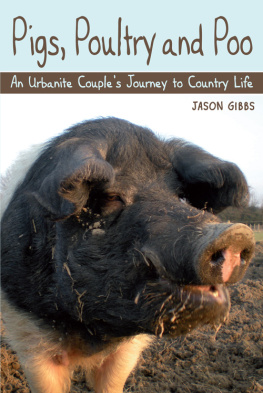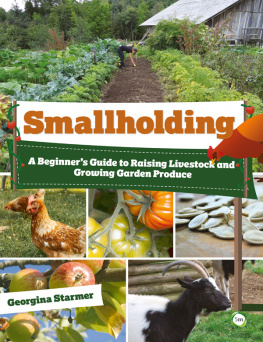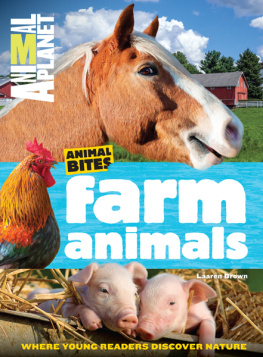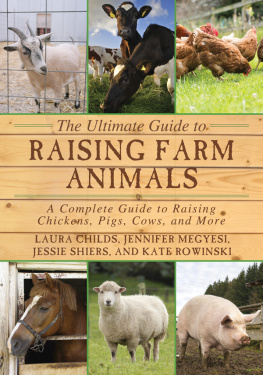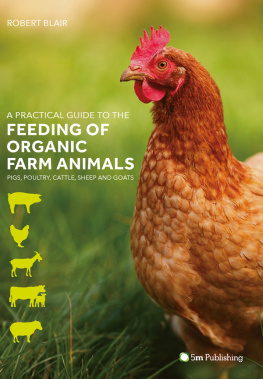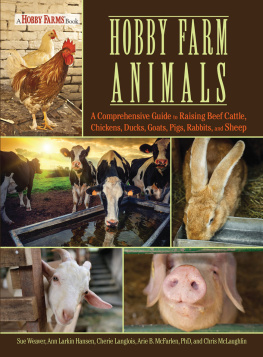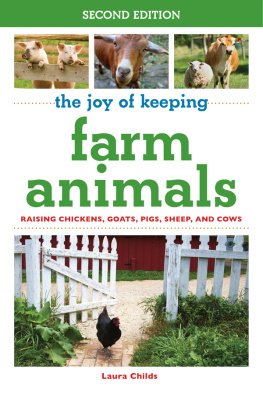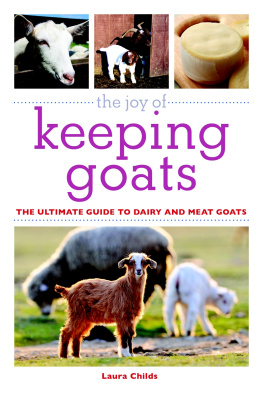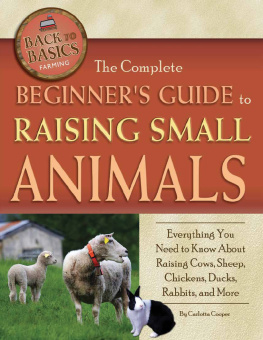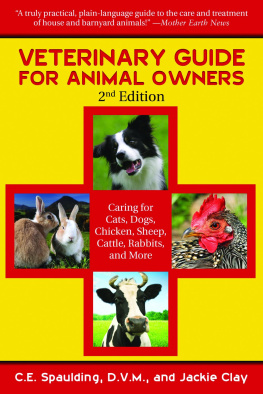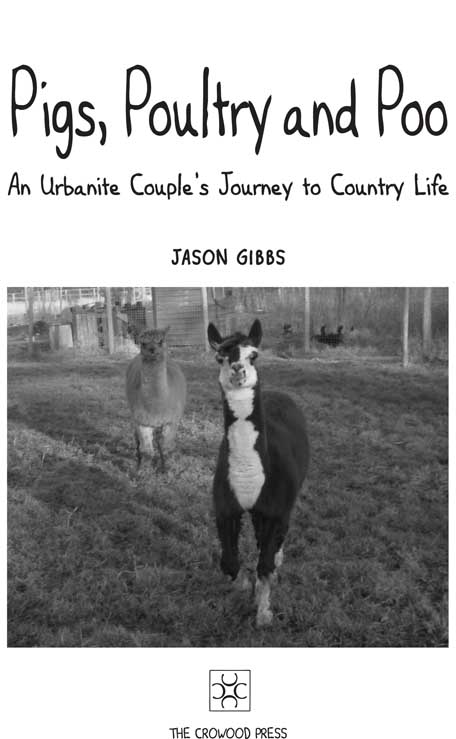First published in 2012 by
The Crowood Press Ltd,
Ramsbury, Marlborough,
Wiltshire, SN8 2HR
www.crowood.com
This e-book edition first published in 2012
Jason Gibbs 2012
All rights reserved. This e-book is copyright material and must not be copied, reproduced, transferred, distributed, leased, licensed or publicly performed or used in any way except as specifically permitted in writing by the publishers, as allowed under the terms and conditions under which it was purchased or as strictly permitted by applicable copyright law. Any unauthorised distribution or use of this text may be a direct infringement of the authors and publishers rights, and those responsible may be liable in law accordingly.
ISBN 978 1 84797 458 7
Frontispiece: our alpacas, Algy and Verdigris, looking inquisitive.
Contents
Introduction
This is not a story about two people leaving London to make a new home in the country, although that does occur. It is also not a story about converting a barn, in part because we havent finished. This is a story about animals and how weve come to care for an eclectic menagerie. Our aim is not to teach though hopefully our mistakes and missteps will be useful to anyone considering taking on the responsibility of animals but to entertain, and perhaps counsel caution.
The Plan
My wife and I used to live in a lower ground floor flat in Islington (or a basement flat in Hackney, depending on whos describing it ... I maintain that we paid Islington council tax so therefore it was in Islington but I digress). I worked in IT in the City, a thirty-minute bus ride, or forty-minute walk away (literally), and Alex (my wife) worked at a law firm in Westminster, a rambling sixty minutes away each morning. We had a small outside space, about ten feet by ten feet, which was cut out of a larger garden owned by the flat above us, but it was enough for the occasional barbecue, and for my smoking friends to hang out in when the urge took them. We were often out at local restaurants, or exploring the nicer end of the food industry around the rest of London, and we could go out with friends at the drop of a hat. It was, all in all, a good life (though obviously not The Good Life) so why did we leave all this and move to a dilapidated and unconverted barn in Hampshire? What madness overtook us?
Firstly Id say that we werent upset by the hollow consumerism of our lives: we did indeed love living in London, and enjoyed the facilities of a large metropolis. It was more that when it came down to it we didnt see ourselves living in Islington forever, and having pets or children there would be more challenging than perhaps we wanted. So we started thinking about moving out. We quickly realized that we werent entirely keen on the suburbs, because even though there was more space, it was still fairly packed, and of course house prices were somewhat discouraging.
Alex was from the wilds of Hampshire, and in my peripatetic youth Id lived in some more rural locations, and gradually the siren call of the countryside began to impinge upon us. One concern I had about moving to the country was whether I had become too citified and would not be able to cope with the fresh air, greenery, animals, bugs and muck, but we experimented with a few trips outside the M25 and nothing tried to eat me or cover me in poo, so I felt a bit more confident. To be fair, my history with creepy crawlies at this point was not impressive, as Alex often reminds me ... One night we were sound asleep in the flat and a giant spider landed on my face, waking me up and completely freaking me out so much so that I insisted that we move to the spare room. Spiders in the distance are OK, but on my face, thats horrible! Alex also wants me to point out that it was unlikely to be a giant, it was probably just a normal-sized spider but then how would she know, she was fast asleep at the time! This incident might have held us back, but Alex usefully told me to toughen up; so with that resolved, we were all set ...
Fish Keeping
Another reason we started looking in the countryside was that Id decided I wanted to be a fish farmer. (This would, of course, have made Alex a fish wife, which still brings me amusement to this day ...) I read an article in The Economist about the Blue Revolution and how wed be able to feed the world with fish farmed using recently developed techniques. It had everything: new technology, food, fish and an underlying mission. Some people might question whether I should have been looking for a loch or bit of Scottish coast, but I had a very specific plan. I was going to farm tilapia, a white fish which is vegetarian (in the sense of eating vegetable matter, not that it is a veggie option on menus), which to my mind is rather important, in that each kilogram of farmed salmon or trout has been fed on 4kg of wild fish caught from the sea (at least this was the case in 2003), which didnt sound particularly sustainable to me.
I researched the topic at some length, covering integrated farming a simple example being chicken poo fed to fish, fish poo fed to grains, grain fed to chickens, with the farmer taking surplus chicken, eggs, fish and grain out of the system and subscribing to fish farming magazines. In the end I decided to try and develop a system similar to one Id read about in the Lebanon, where a series of pools were connected with pipes so that as the fish matured they could be moved between pools until they could be taken out for food. I also had a crazy idea of letting the tilapia swim in a mixture of water and white wine for their final week or so to give them some extra flavour ...
So there I was with a plan, some rough costings, and the requirement for some outbuildings. Alex was surprisingly supportive during this time usually she spots when Ive developed some hare-brained scheme and taunts me mercilessly until I give it up. I suspected it was because she felt it helped us to move out of the Big Smoke. Actually she had an alternative strategy ... she bought me some fish for Christmas.
Not just any fish: some tropical fish. Well, actually she bought me a large tank, and then later we both went to get the fish together. The tank was a rectangular fifty-litre glass box, with all the filters and heater in one corner, and was specifically designed for tropical fish. The instructions were to set it up, get some water in it and add a few chemicals, and then leave it for a week or so to allow it to settle before putting in any fish. I was so excited, the anticipation was excruciating, and I believe is part of a conspiracy between tank makers and fish sellers to encourage people to buy more.
After a breathless week of waiting we headed to the Sea Dragon, our local live fish vending establishment, and with a bit of advice, took home some tropical fish. As I recall we bought two albino tiger barbs (which weve since learned are aggressive fish and probably not good to start off with), four zebra danios (small, thin-striped fish), four neon tetras and four harlequins (which for some reason I named after the turtles, Leonardo, Michelangelo, Donatello and Raphael).
The arrival of the fish revealed a couple of traits in me which Id kept long hidden: I can be slightly obsessive, and a little daft. I bought several books on keeping tropical fish, and a log book (in fact a normal lined paper book, but I used it as a log book). In the log book I recorded each time I fed the fish, each time we cleaned out the tank, and, sadly, each time a fish died Id even draw a little tombstone with RIP written on it. This lasted for about four months until I relaxed somewhat about the fish, and realized that my log was telling me very little. The books revealed that we knew very little about tropical fish: to summarize they are very sensitive to temperature variations, and they can die at the drop of a hat. One book recommended we had our fish autopsied when they died, but that seemed somewhat ridiculous, and if possible, Id guess rather expensive.

